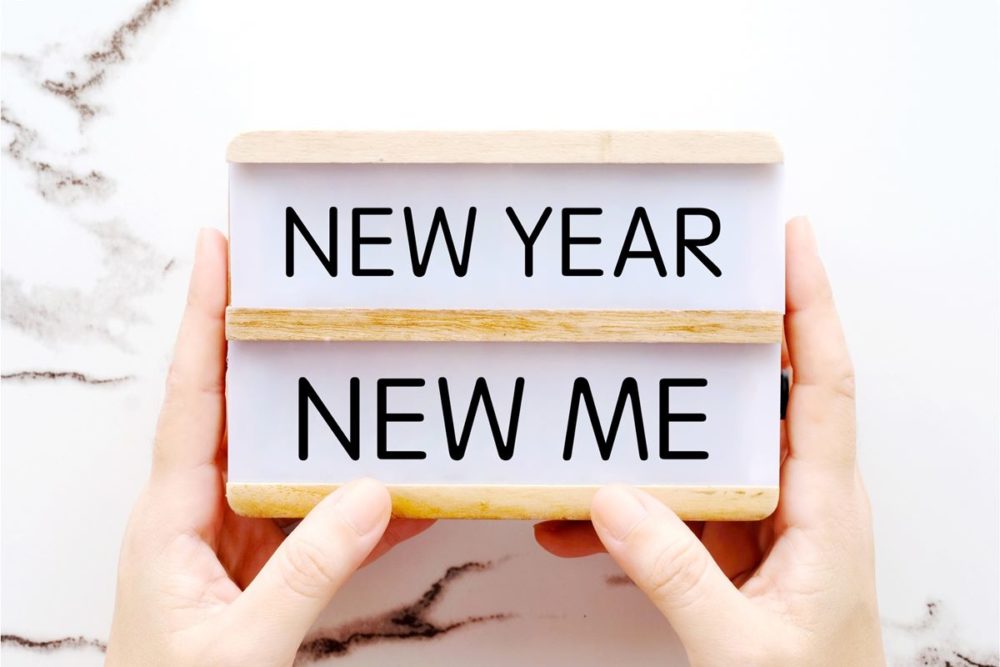Resisting the New Year race to self-improvement

James Downs, Mental Health Campaigner
The promise of change
Approaching a new year, we are told to change: change your diet, change your fitness routine, improve your appearance, revamp your career goals.
Self-optimisation has become one of the most celebrated pursuits in modern society.
As a psychological therapist, I can appreciate how the pursuit of self-improvement in our culture can support the natural human desire for growth and flourishing.
Yet through my work with others – and through my own mental health challenges – I’ve seen how our culture’s relentless focus on change and progress can easily push us into seeing ourselves as projects to work on, with broken pieces to fix.
New Year can be an especially difficult time to see ourselves as ‘good enough’, just as we are.
If you are looking to create a more flexible and compassionate approach to your mental health and wellbeing in 2025, I hope my alternative New Year’s Resolutions offer you some ideas about where to start:
1. Take the weight off dieting
Society often frames eating and weight as a moral issue. Dietary discipline is seen as a personal virtue, as though being able to stick to a meal plan says something about how good you are as a person.
Whilst this narrative might make us feel good when things are going well, it only sets us up to fail when we veer off course or ‘cheat’. Worryingly, dieting also increases the risk of being diagnosed with an eating disorder, as I was in my teens.
Rather than jumping on the latest diet trend, it might be more helpful to learn more about the broader factors that shape our eating habits in the first place.
This fascinating Royal Institution lecture by Dr Chris van Tulleken is a great place to start, showing how our eating patterns are less about willpower and more a complex interplay of biology, psychology, culture, and environment.
2. Exercise for enjoyment, not how it looks
In January, social media is flooded with ultra-fit influencers showcasing gruelling workout routines and so-called ‘perfect’ bodies.
While inspiring to some, these messages can create unrealistic expectations about how much exercise we need to be healthy. In our hyper-visual culture, airbrushed and filtered images of beautiful, happy, and successful people might add a layer of shame if our lives and bodies don’t measure up.
I’m not saying that exercise isn’t beneficial, or that taking pride in your appearance is bad, but evidence shows that overly-evaluating ourselves based on our weight and shape can negatively impact mental health.
How our body feels might be a better indication of our wellbeing, and being guided by what we enjoy can help motivate us to keep moving.
Adding a social dimension can bring feelings of belonging, and research in Wales shows how exposure to green and blue spaces reduces the risk of anxiety and depression.
Exercise doesn’t need to be extreme to be effective, either, and exercising daily can actually prevent your body from gaining the benefits of exercise which happen during recovery.
A short walk or a few yoga stretches can also work wonders to lift your energy. Exercise at its best helps us to be more well-regulated and connected with our bodies, so listening to your body is key.
3. Do Nothing
Whilst our culture of productivity and progress has driven so much human achievement, it can also leave us exhausted if we don’t rest.
But even our relaxation time these days can easily get eaten up by doom-scrolling and email-checking – keeping us mentally occupied even if we look like we are relaxing.
We might want to switch off from being constantly available and alert, but not know when, how, or where to start.
Many therapists suggest mindfulness can help with this – giving us tools to be more present with how we are in the here-and-now.
In my experience, I’ve found many people dislike the idea of mindfulness, and that some exercises can be inappropriate for certain psychological difficulties.
On the other hand, some clients will rush off to download the latest App to track how many minutes they can meditate for, or how good they can become at breathing.
Taking up an activity without having to monitor, improve, or be ‘good’ at it might feel countercultural – but in our effortful society, doing nothing in particular can be the small act of rebellion we need.
Whether this is mindfulness, walking, or a creative hobby, it can be truly restorative to do something for no real reason other than because we enjoy it.
How are you, really?
This New Year, one of the best resolutions we might make is to focus on how we are doing – rather than what we are doing, how much we are doing, or how well we are doing it all.
Whatever we hope for in 2025, the best thing for our mental health may be to let outcomes and appearances take a back-seat, and to spend time getting to know ourselves as we really are.
James Downs is a mental health campaigner, researcher, psychological therapist and expert by experience in eating disorders.
He lives in Cardiff and can be contacted at @jamesldowns on X and Instagram, or via his website: jamesdowns.co.uk
Support our Nation today
For the price of a cup of coffee a month you can help us create an independent, not-for-profit, national news service for the people of Wales, by the people of Wales.





